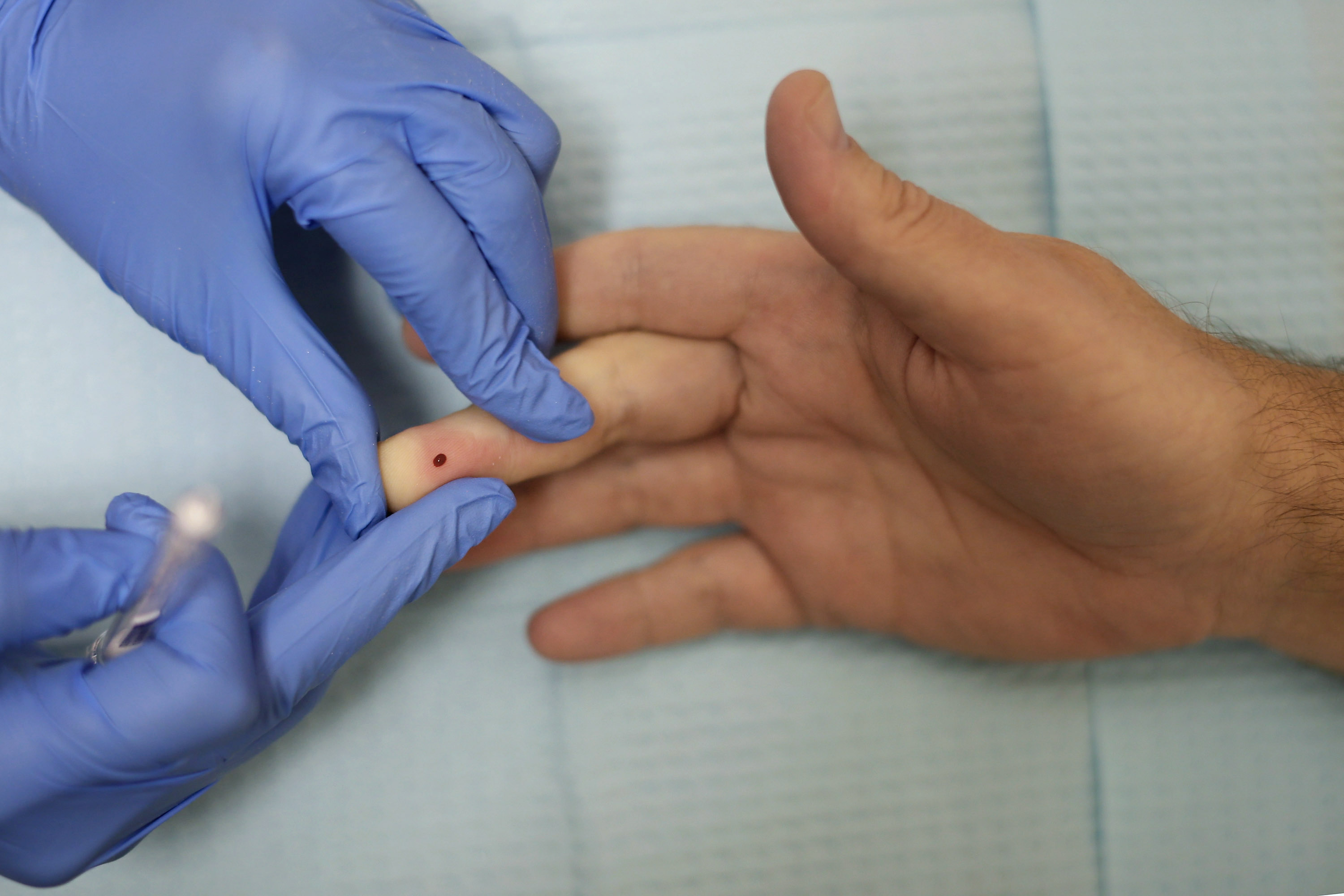The rise and fall of Theranos
Theranos promised nothing short of a paradigm shift in medicine with its revolutionary, needle-free test method

A free daily email with the biggest news stories of the day – and the best features from TheWeek.com
You are now subscribed
Your newsletter sign-up was successful
The smartest insight and analysis, from all perspectives, rounded up from around the web:
Two years ago, the blood-testing startup Theranos "was one of the hottest properties in Silicon Valley," said David Crow at the Financial Times. Valued at $9 billion, it promised nothing short of a paradigm shift in medicine with its revolutionary, needle-free test method. CEO Elizabeth Holmes, a 32-year-old Stanford dropout, was gushingly profiled in the business press as the world's youngest self-made female billionaire. But today, the company is "fighting for its survival," amid claims that its tests are "at best, fundamentally flawed and, at worst, unsafe." The trouble began six months ago, when The Wall Street Journal reported that the company's breakthrough technology, which could affordably run hundreds of tests with blood from a finger prick, couldn't actually deliver. Not long after, the Centers for Medicare & Medicaid Services, which regulates lab testing, said that Theranos "put patients' lives at risk" with faulty tests at its California lab. The latest blow: The Justice Department and the Securities and Exchange Commission recently opened separate criminal investigations into whether Theranos misled investors about its technology.
"Nothing is proven yet," said Nick Stockton at Wired. But Silicon Valley has been put on notice: "Keep your promises, or else." It's very unusual for the SEC to investigate a privately held company like Theranos, but it could begin to happen more often. SEC Chair Mary Jo White wants to give more scrutiny to the growing number of so-called unicorn startups, which are valued at more than $1 billion, "because they pose a high risk to investors." The company's fate is now in the hands of its charismatic founder, said Reed Abelson at The New York Times. As the company's chief executive, chairwoman, and majority stakeholder, Holmes can dictate "what she wants done at her company." It's a common arrangement in Silicon Valley's startup culture, where boards have "little real power." Many venture capitalists are willing to take the risk, hoping to get in with the next Mark Zuckerberg, but "if trouble brews," the cult surrounding a founder can become a liability.
The Week
Escape your echo chamber. Get the facts behind the news, plus analysis from multiple perspectives.

Sign up for The Week's Free Newsletters
From our morning news briefing to a weekly Good News Newsletter, get the best of The Week delivered directly to your inbox.
From our morning news briefing to a weekly Good News Newsletter, get the best of The Week delivered directly to your inbox.
"The Theranos downfall was inevitable," said Alice Park at Time. To date, the company has never been able to prove its testing technology actually works. Instead of publishing research in peer-reviewed journals, or allowing its blood-testing machines to be examined by outside experts, the company has always kept its methods shrouded in secrecy. Theranos argued that it was protecting trade secrets, but testing transparency is standard practice in the medical industry. Even drug companies, which operate in a highly competitive sector, publish enough results of their drug trials to prove that a medicine actually works, while still keeping enough details secret to make their product proprietary. Blood testing is a $73-billion-a-year industry ripe for disruption, said Arthur Caplan, also at Time. As anyone who's had blood drawn can attest, it's time-consuming, uncomfortable, and expensive. Who better to shake up this stodgy old industry than Holmes, who came complete with a familiar, Steve Jobs–like story? Here's why nobody asked the hard questions about Theranos' technology: "We wanted it to be true."
A free daily email with the biggest news stories of the day – and the best features from TheWeek.com
-
 Local elections 2026: where are they and who is expected to win?
Local elections 2026: where are they and who is expected to win?The Explainer Labour is braced for heavy losses and U-turn on postponing some council elections hasn’t helped the party’s prospects
-
 6 of the world’s most accessible destinations
6 of the world’s most accessible destinationsThe Week Recommends Experience all of Berlin, Singapore and Sydney
-
 How the FCC’s ‘equal time’ rule works
How the FCC’s ‘equal time’ rule worksIn the Spotlight The law is at the heart of the Colbert-CBS conflict
-
 The pros and cons of noncompete agreements
The pros and cons of noncompete agreementsThe Explainer The FTC wants to ban companies from binding their employees with noncompete agreements. Who would this benefit, and who would it hurt?
-
 What experts are saying about the economy's surprise contraction
What experts are saying about the economy's surprise contractionThe Explainer The sharpest opinions on the debate from around the web
-
 The death of cities was greatly exaggerated
The death of cities was greatly exaggeratedThe Explainer Why the pandemic predictions about urban flight were wrong
-
 The housing crisis is here
The housing crisis is hereThe Explainer As the pandemic takes its toll, renters face eviction even as buyers are bidding higher
-
 How to be an ally to marginalized coworkers
How to be an ally to marginalized coworkersThe Explainer Show up for your colleagues by showing that you see them and their struggles
-
 What the stock market knows
What the stock market knowsThe Explainer Publicly traded companies are going to wallop small businesses
-
 Can the government save small businesses?
Can the government save small businesses?The Explainer Many are fighting for a fair share of the coronavirus rescue package
-
 How the oil crash could turn into a much bigger economic shock
How the oil crash could turn into a much bigger economic shockThe Explainer This could be a huge problem for the entire economy